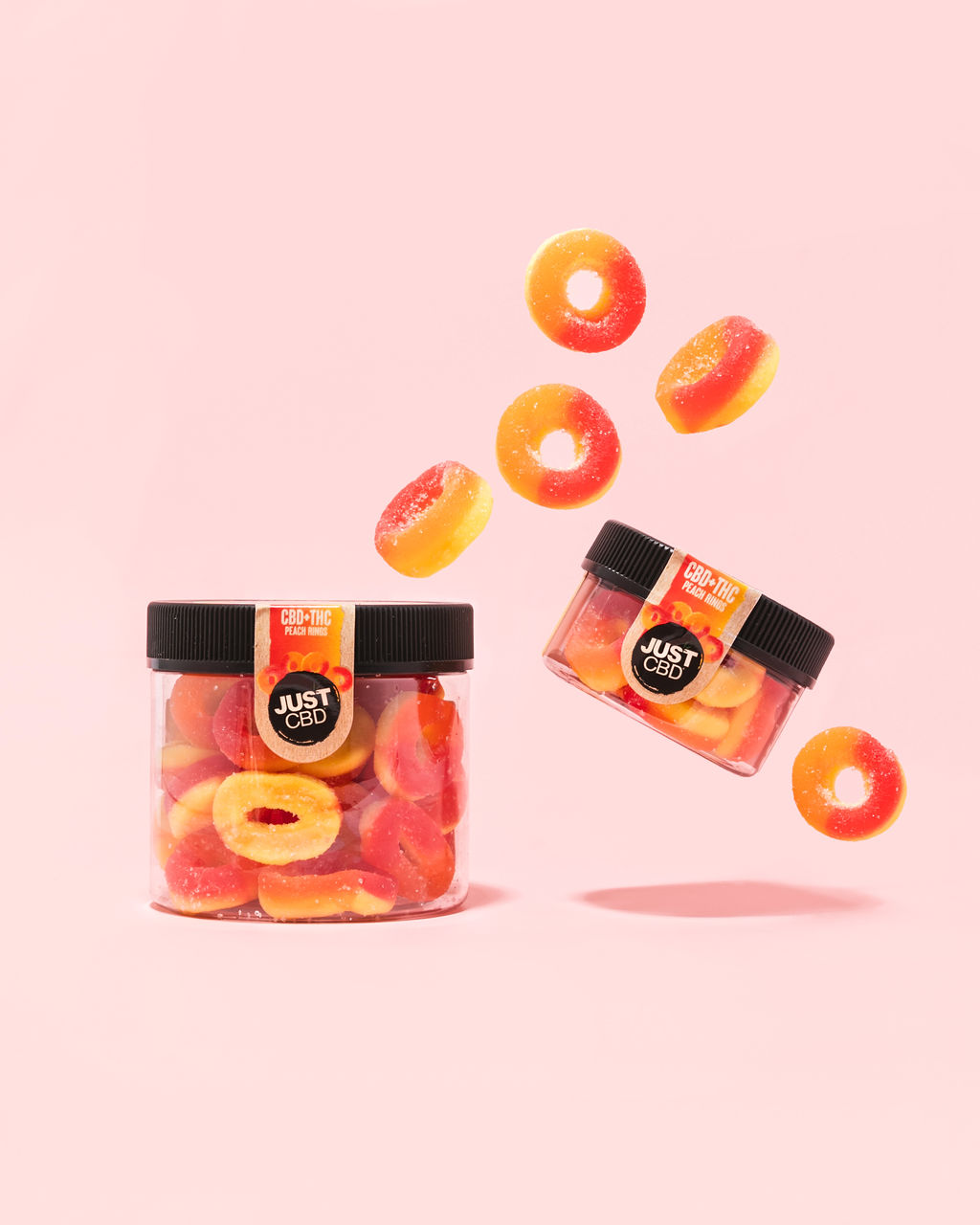CBD, or cannabidiol, is a compound derived from the cannabis plant. While CBD is commonly associated with human wellness, it is increasingly being used for pets as well. Pet owners are turning to CBD to help manage conditions like anxiety, pain, inflammation, and seizures in their furry companions. However, with any new treatment, it’s important to understand its safety, appropriate dosage, and potential side effects to ensure the best outcome for your pet.
What is CBD?
CBD is one of over 100 compounds found in the cannabis plant. Unlike THC (tetrahydrocannabinol), which is another prominent cannabinoid, CBD does not have psychoactive effects, meaning it does not cause the “high” often associated with cannabis use. CBD interacts with the endocannabinoid system in both humans and animals, which plays a role in regulating various bodily functions, such as pain, mood, appetite, and immune response.
In pets, CBD is most commonly administered in the form of oils, treats, capsules, and topicals. The goal is to offer the same potential therapeutic benefits to pets as it does to humans, including calming effects for anxiety, pain relief, and anti-inflammatory benefits.
Is CBD Safe for Pets?
As pet owners begin considering CBD for their pets, the question of safety naturally arises. Although CBD is generally considered safe for pets, it is important to approach it cautiously and with knowledge.
Potential Side Effects
CBD is considered non-toxic to pets, but like any supplement, it can have side effects. Some common side effects include:
- Drowsiness or sedation: Especially at higher doses, CBD can have a calming effect, which might lead to excessive drowsiness. This can be beneficial for anxious pets but could be undesirable for active or working animals.
- Dry mouth: CBD can reduce saliva production, potentially leading to dry mouth in pets. This may cause them to drink more water than usual.
- Diarrhea or gastrointestinal upset: Some pets may experience mild digestive upset, particularly if they are not used to CBD.
- Low blood pressure: In some cases, CBD may cause a temporary drop in blood pressure, leading to dizziness or lightheadedness, especially at high doses.
These side effects are usually mild and tend to resolve once the CBD dosage is adjusted or the pet’s body gets accustomed to it. However, it’s always a good idea to start with a lower dose and monitor your pet’s reaction before increasing the amount.
Consult Your Veterinarian
Before introducing CBD into your pet’s routine, it’s advisable to consult with a veterinarian, especially if your pet has underlying health conditions, is on medication, or has a history of liver or kidney issues. Veterinarians knowledgeable about CBD can provide valuable guidance on the safety and dosage, ensuring that it’s a suitable option for your pet’s specific needs.
While CBD is legal in many regions, it’s important to choose pet products that are specifically formulated for animals, as certain ingredients in human CBD products may not be safe for pets.
Benefits of CBD for Pets
Pet owners are using CBD to address various health issues in their pets. Here are some common uses of CBD for pets:
Anxiety Relief
One of the most popular uses of CBD for pets is to help with anxiety. Pets can experience anxiety due to various reasons, including separation anxiety, noise phobias (such as fear of thunderstorms or fireworks), and general stress. CBD is known for its calming properties, which can help pets feel more relaxed during stressful situations.
Pain and Inflammation Management
Pets suffering from chronic pain, particularly those with arthritis or joint problems, may benefit from CBD. Its anti-inflammatory properties can help reduce swelling and alleviate pain, allowing pets to move more freely and comfortably. CBD has also been shown to have potential analgesic (pain-relieving) effects, making it a popular choice for senior pets or those recovering from surgery.
Seizure Control
CBD has gained attention for its potential to help manage seizures in pets. Epilepsy and other seizure disorders are relatively common in animals, and some pet owners have reported positive results with CBD as an adjunctive treatment. Although research on CBD’s effects on seizures in pets is still in its early stages, initial studies have shown promising results.
Appetite and Nausea Control
Pets suffering from nausea, especially those undergoing treatments like chemotherapy, may experience a loss of appetite. CBD may help stimulate appetite and reduce feelings of nausea, improving the overall well-being of pets during times of illness.
Determining the Right Dosage for Your Pet
Determining the right dosage of CBD for your pet can be tricky, as there are many factors to consider, including your pet’s size, weight, and overall health. Here’s a general guideline for administering CBD to pets:
Start Low and Go Slow
One of the most important principles when giving CBD to your pet is to start with a low dose and gradually increase it if necessary. This helps you monitor any side effects and find the optimal dose for your pet. Many pet CBD products come with dosage recommendations based on the pet’s weight, so it’s a good idea to follow these guidelines to start with.
General Dosage Recommendations
- Small pets (under 10 lbs): 1-2 mg of CBD per dose.
- Medium pets (10-30 lbs): 2-5 mg of CBD per dose.
- Large pets (30+ lbs): 5-10 mg of CBD per dose.
Typically, CBD can be given to pets once or twice daily. You can adjust the dosage based on your pet’s response, but always consult with your veterinarian before making any changes.
Monitoring Your Pet’s Reaction
After administering CBD, monitor your pet’s behavior and any changes in their condition. If your pet experiences any adverse side effects, such as excessive drowsiness or digestive upset, you may need to adjust the dosage or discontinue use. If the effects are positive and your pet shows signs of relief, you may continue with the same dosage.
Different Forms of CBD for Pets
CBD for pets comes in a variety of forms, and the right form will depend on your pet’s preferences and needs. Some of the most common forms of CBD for pets include:
- CBD oils and tinctures: These are the most versatile form, allowing you to adjust the dosage easily by adding drops to your pet’s food or administering them directly.
- CBD treats: Pet-friendly CBD treats are available in various flavors, making them an easy way to administer CBD. However, they may be less flexible in terms of dosage control compared to oils or tinctures.
- CBD capsules: These are less commonly used but offer a pre-measured dose of CBD. Capsules can be helpful if your pet is used to taking pills.
- CBD topicals: For pets suffering from localized pain or skin conditions, CBD-infused creams or balms can be applied directly to the affected area.
Final Thoughts
CBD can be a helpful addition to your pet’s wellness routine, offering a range of potential benefits for managing anxiety, pain, inflammation, seizures, and more. However, as with any supplement or treatment, it’s crucial to understand the correct dosage and consult with your veterinarian to ensure safety. Always choose high-quality, pet-specific CBD products to ensure that your pet receives the best care possible. By starting slow and monitoring your pet’s reaction, you can help ensure that CBD is a safe and effective solution for your pet’s needs.
As a pet owner, I’ve always been on the lookout for products that could help my furry friends feel their best. When I came across CBD for Pets from Just CBD, I was intrigued by the idea of using CBD to potentially ease anxiety and promote overall well-being for my pets. So, I decided to give a few of their products a try. Here’s a breakdown of my experience:
CBD Dog Treats (JustPets)
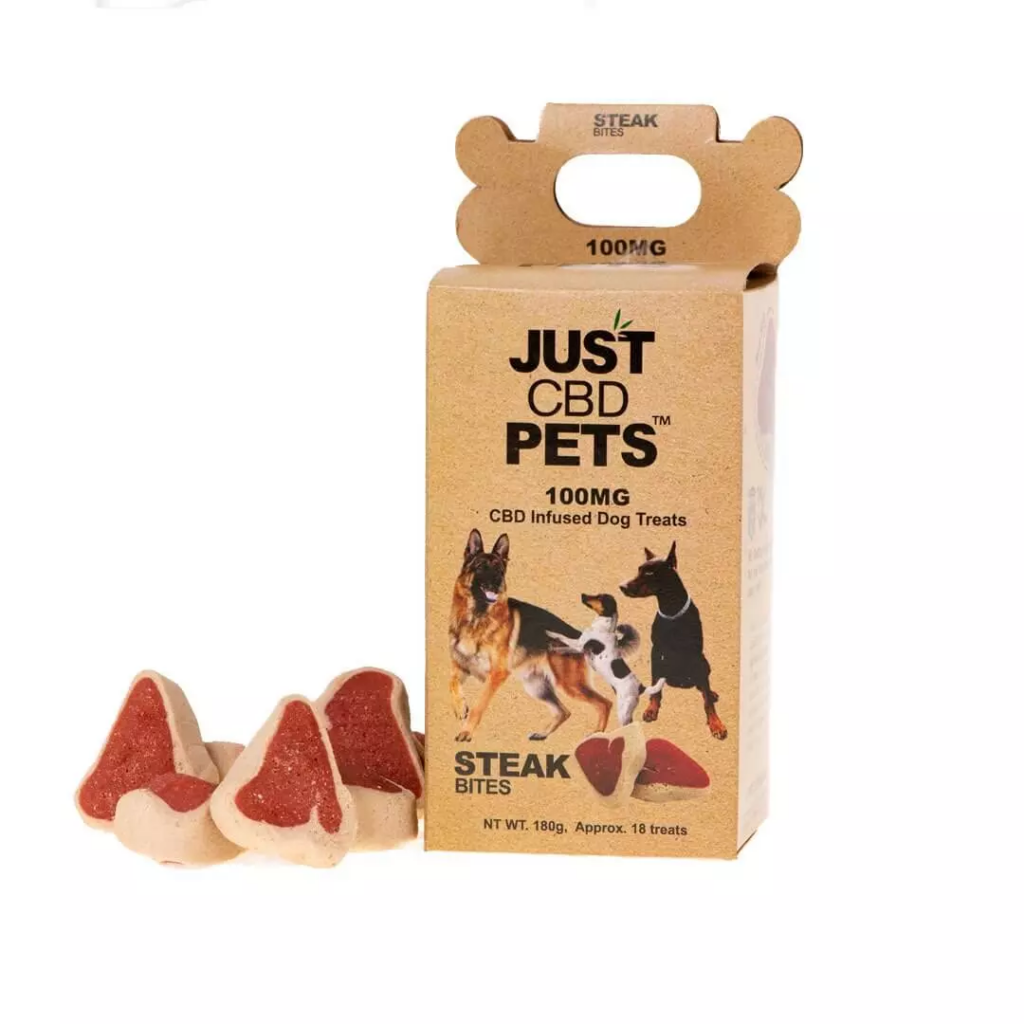
Where to buy: CBD Dog Treats – JustPets
I started with the CBD Dog Treats. My dog, Max, is a bit of a treat connoisseur, so I was curious to see if he would take to these. They came in a fun, dog-friendly shape, and the best part was that he loved them right off the bat. Max has been a little more energetic and content after having these regularly. I noticed a slight improvement in his general mood, and he seems more at ease, especially during those times when he’s usually a bit nervous (like when we go to the vet). The only downside? They’re a bit on the pricey side, but I’d say they’re worth it for Max’s peace of mind.
Organic Pet Treats
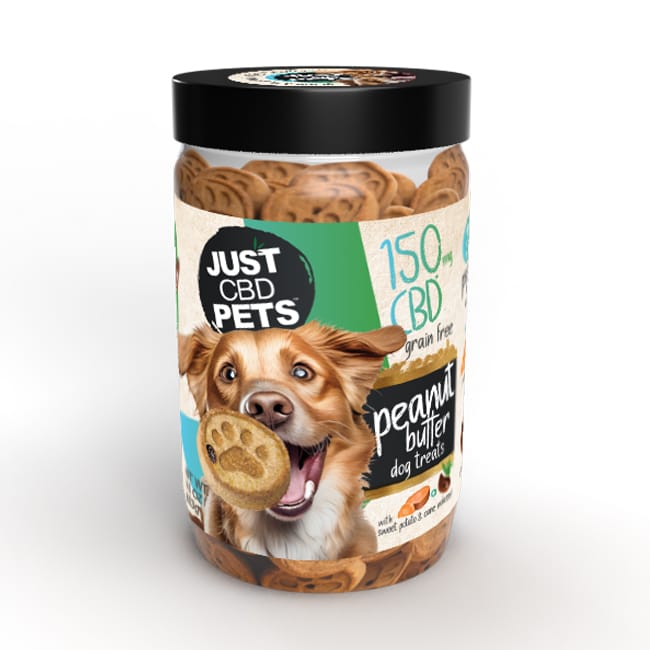
Where to buy: Organic Pet Treats
Next up, I tried the Organic Pet Treats, which I thought would be a good option for my other dog, Daisy, who has a sensitive stomach. These treats are made with organic ingredients and infused with CBD, and Daisy was all over them. She has a tendency to get anxious, especially when left alone, and I noticed she seemed a little more relaxed after a couple of these. The treats are easy to digest, and I love that they’re organic. My only issue with them is the size—some of the treats are a bit too small for Daisy, who’s a bigger dog, so I end up giving her a couple to make sure she’s getting the right dosage.
Pet Tincture Salmon
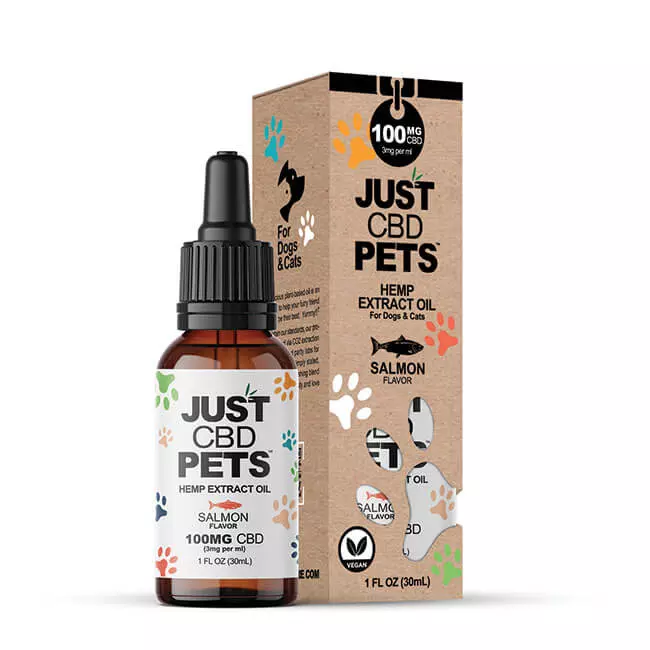
Where to buy: Pet Tincture Salmon
I decided to try the Pet Tincture Salmon for both Max and Daisy, as I thought the tincture would give me a bit more control over their dosage. I mixed it in their food, and the salmon flavor was a big hit! The tincture seems to be super effective—both of them became more chill and relaxed, especially during stressful events like car rides or loud noises. My one critique is that the dropper can be a little tricky to use—sometimes I spill a bit more than I mean to. Still, the results are definitely worth it.
Pet Tincture Bacon
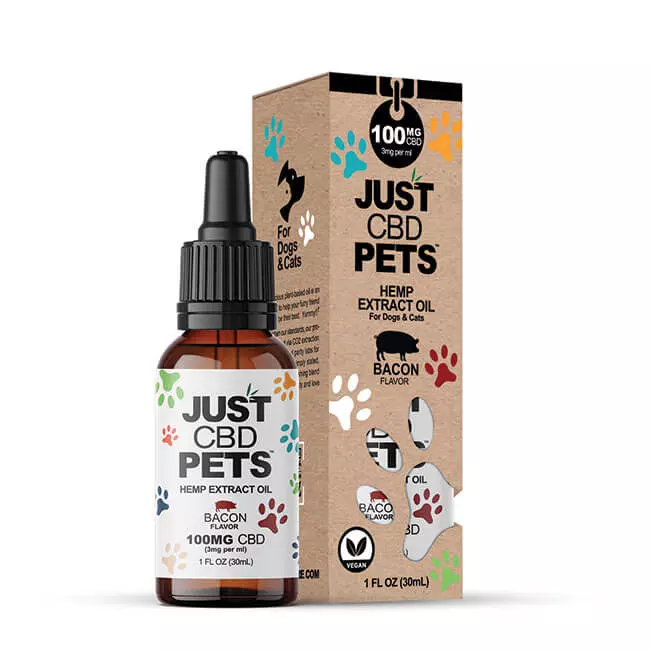
Where to buy: Pet Tincture Bacon
Finally, I tried the Pet Tincture Bacon, and, wow, this was a major win in my house! Both dogs absolutely loved it. The bacon flavor made it easy to add to their food, and I saw a noticeable difference in how they handled stressful situations. It’s great for general well-being, and both dogs seem to be in better spirits overall. Like the salmon tincture, the dropper can be a bit tricky, but I find it manageable. I would definitely say this one is my favorite between the two tinctures!
Final Thoughts
Overall, I’m really impressed with Just CBD’s pet products. The dog treats were a hit, the tinctures worked wonders for both my dogs’ anxiety, and I love the organic ingredients used in the treats. If I had to pick a favorite, I’d go with the Bacon Tincture, but both tinctures were highly effective. My only gripe is the occasional tricky dropper, but it’s a small issue considering the results. If you’re looking to try CBD for your pets, these products are definitely worth considering!
Safety and Dosage: What Pet Owners Should Know About Using CBD
CBD products for pets are generally safe when used as directed. It’s essential to follow the recommended dosage based on your pet’s size and weight. Start with a lower dose and monitor your pet’s response. If you’re unsure, consult your veterinarian to ensure the proper dosage for your pet’s specific needs.
How Do CBD Products Help Pets?
CBD products can help pets with various issues such as anxiety, stress, pain, and even inflammation. It works by interacting with the endocannabinoid system, which helps regulate various bodily functions. Many pet owners report improvements in their pets’ moods, mobility, and overall well-being.
Can CBD Make My Pet “High”?
No, CBD is non-psychoactive, meaning it won’t make your pet feel “high” like THC. It offers therapeutic benefits without altering your pet’s mental state, making it a safe and effective option for promoting relaxation and health.
How Long Does It Take for CBD to Work on Pets?
The effects of CBD can vary depending on your pet’s metabolism, size, and the type of product used. Generally, you can expect to see results within 30 minutes to 1 hour when using tinctures or treats. For long-term effects, it may take several weeks of consistent use.
Are CBD Products Legal for Pets?
Yes, CBD products derived from hemp are legal for pets in most states, as they contain less than 0.3% THC. However, laws can vary by region, so it’s essential to check local regulations before purchasing or using CBD products for your pet.
Can I Use Human CBD Products for My Pets?
While some human CBD products are safe for pets, it’s best to use products specifically formulated for animals. Pet CBD products are designed with proper dosages and flavors to suit pets’ needs and sensitivities.
Are There Any Side Effects of Using CBD for Pets?
CBD is generally well-tolerated, but some pets may experience mild side effects, such as drowsiness, dry mouth, or slight changes in appetite. If you notice any adverse reactions, stop using the product and consult your vet.
How Do I Choose the Right CBD Product for My Pet?
When selecting a CBD product for your pet, look for high-quality, organic ingredients, and ensure the product contains CBD derived from hemp. Choose a product with clear dosage guidelines that suit your pet’s size and specific needs. Third-party lab testing is also essential to confirm product potency and safety.
Can CBD Help With My Pet’s Joint Pain?
Yes, many pet owners use CBD to help alleviate joint pain, arthritis, and inflammation in their pets. CBD’s anti-inflammatory properties can reduce swelling and discomfort, helping to improve mobility and quality of life for pets suffering from joint issues.
How Should I Administer CBD to My Pet?
CBD can be administered to your pet in various ways, including treats, tinctures, or capsules. Treats are easy to incorporate into their routine, while tinctures can be added to their food or directly into their mouth. Adjust the method depending on your pet’s preferences and the product’s specific instructions.
- Must-Have THC Beverages in Tennessee - June 3, 2025
- Popular THC Infused Drinks in Missouri - June 2, 2025
- Michigan’s Most Loved THC Beverages - June 2, 2025

